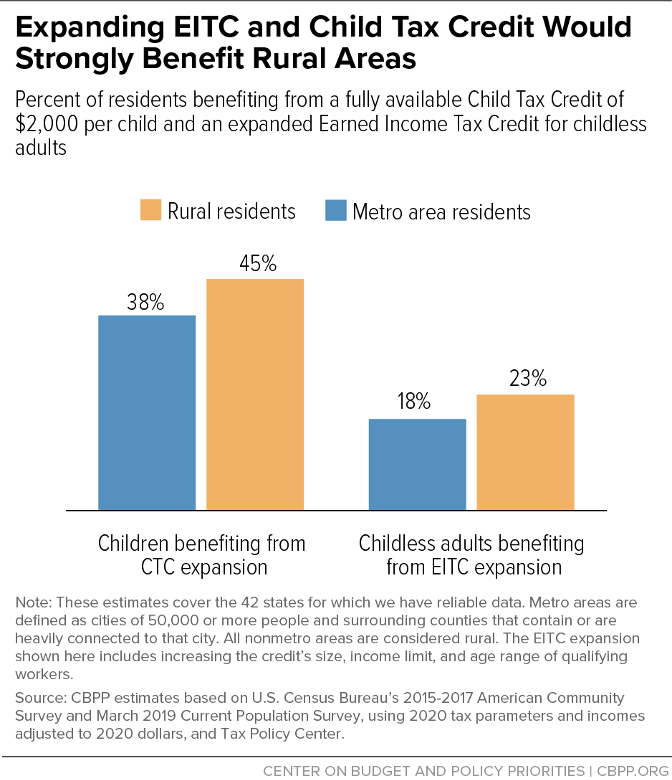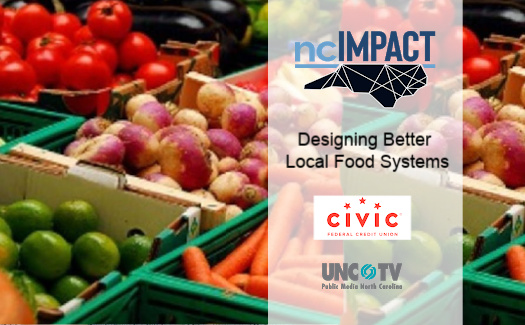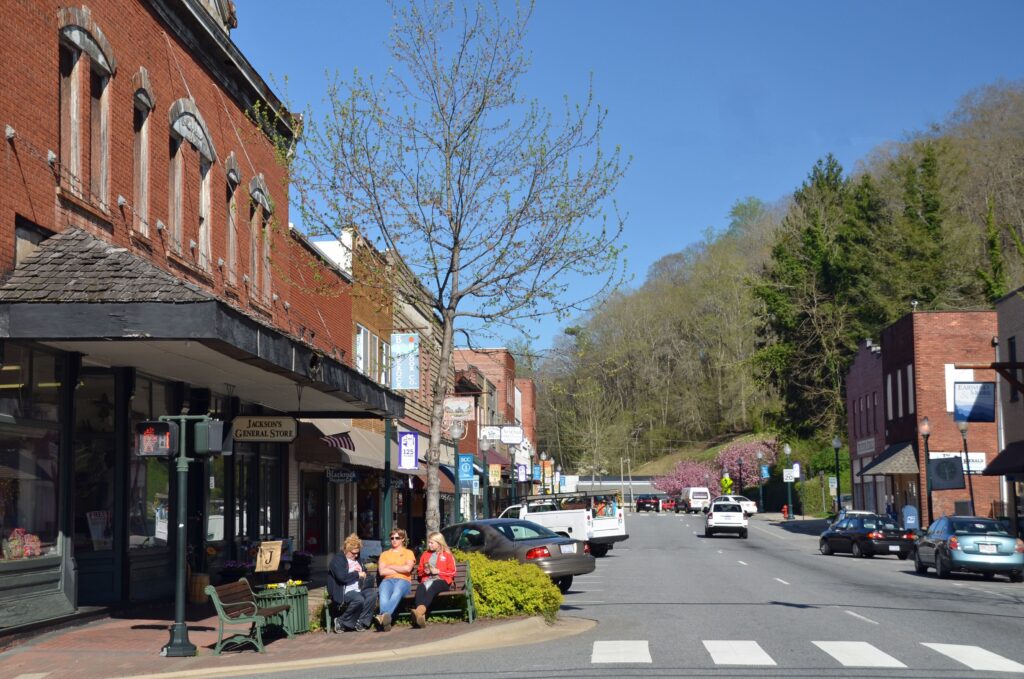Facts That Matter Blog
Facts That Matter Blog

Tax Preparation and the Earned Income Tax Credit in Rural America
Only about 80% of eligible individuals nationally claim the EITC, and folks living in rural areas are less likely to do so than those in urban areas. Given its importance to impoverished communities, the ncIMPACT Initiative at the UNC School of Government is working on a Rural EITC Uptake Project with Rural Forward NC, the UNC School of Social Work’s Jordan Institute for Families, and the NC Justice Center. This ongoing project is taking place in Beaufort, Edgecombe, Halifax, McDowell, Nash, Robeson, and Rockingham counties and is working to both understand the number of eligible individuals claiming the credit and reasons that the credit may go unclaimed.
+ Continue Reading Article
Designing Better Local Food Systems – Wake County (Blog)
North Carolina is the 10th hungriest state in the nation, with 604,000 households that do not have enough to eat. The Wake County Food Security Plan tackles hunger through a whole systems approach, examining not only hunger, but the social and economic context around the issue.
+ Continue Reading Article
Elder Abuse Prevention – Johnston County (Blog)
Elder abuse is a growing problem in the United States, with about 10% of elder adults abused in some way each year. Learn about how UNC School of Government faculty formed the North Carolina Elder Protection Network, and how Johnston County assembled a multidisciplinary team to combat elder abuse.
+ Continue Reading Article
Unwrapping the Information to Action Framework
The ncIMPACT Initiative has been collaborating with many of you leaders on the front lines, to learn how you have found effective paths forward during these once unimaginable circumstances. We have observed some relative consistency in the way decisions have been approached in communities across the state and the country. The Information to Action Framework distills our observations into a scaffolding that is usable and replicable, regardless of the size of your community or your available resources.
+ Continue Reading Article
The Great Migration? Small Town Economics and a COVID-19 Population Reshuffle
Small towns may not be able to compete with large and mid-sized cities in terms of major amenities, but small towns have unique assets on which they could capitalize. Place-based strategies contribute to the development of the community and may make that community more attractive for remote workers. Prior to the pandemic, workers craved communities with peer support groups and places to foster creativity. Co-working spaces and other entrepreneurial supports can help develop rural communities into thriving areas full of creative connections.
+ Continue Reading Article
Innovations in the Face of Crisis: Keys to Economic Recovery from COVID-19
The ncIMPACT Initiative at the UNC School of Government and NCGrowth at the Kenan Institute for Private Enterprise partner to identify strategies that will help local economies recover more quickly from the COVID-19 pandemic. Through robust data analysis, case studies, webinars, and peer learning sessions, NC local governments have access to some of the best economic recovery resources in the nation. Learn more about project findings and resources at https://go.unc.edu/KeystoRecovery. You may register for the final free webinar on Jan. 27 at 2 p.m. using this link: https://go.unc.edu/s2N4T.
+ Continue Reading Article
‘Tis the Season – 12 Days of Data
On December 22, our holiday gift to all of you will be an Information to Action Framework that we believe will be useful as your community charts its economic recovery from the pandemic. But first, over the next couple of weeks, we’ll share some of the data snapshots that comprise our composite metrics.
+ Continue Reading Article
What Can We Do About COVID-19 LEARNING LOSS?
We might argue about the extent, but there is no question that learning loss is a concern and that local communities are scrambling to respond. Even so, despite the challenging outlook, the ncIMPACT Initiative at the UNC School of Government remains optimistic about cross-sector innovation efforts, and the remarkable resilience demonstrated by those on the front lines as they adapt and evolve in the face of the COVID-19 pandemic.
+ Continue Reading Article
Social Capital – Health & Economic Benefits of Connecting While Distancing
During COVID-19, social capital is proving to be a necessary ingredient for positive health and economic outcomes.
+ Continue Reading Article
Opioid Response Project Team Spotlight: Durham County
Dr. Wanda Boone describes the Opioid Response Project experience as extremely rewarding, not only because of shared information at forums, but because of the dialogue that happened during presentations and with speakers. “Presenters have been knowledgeable, respectful and open to hearing feedback,” said Boone. “The School of Government took time to think about the balance of speakers between novices and experts in the room, and to me, that was the most wonderful aspect of the project.”
+ Continue Reading ArticleSearch ncIMPACT content by county
Use the arrows below to search by county map or county list
